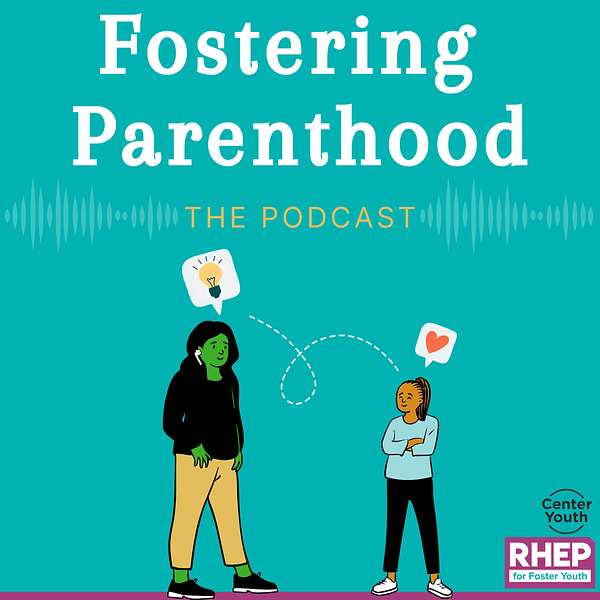
Fostering Parenthood
Fostering Parenthood
Consent: Can I get some FRIES with that?
What's an out-code? And how do I teach my kid about consent? It's all here in our very first episode of Fostering Parenthood. We meet with former foster youth Tamar and caregiver Dayna Freier, who give their take on explaining consent and bodily autonomy to your foster youth.
When people think of “consent” they may think of teenagers learning of sexual consent, but it starts way early than that. In this episode, we discuss how to apply consent and bodily autonomy principles with foster youth. Our guest Dayna Freier provides tips and tools on what she does with her kiddos to help them understand consent and bodily autonomy.
Guests on the show:
Tamar: Former foster youth, mom, member of the Youth Advisory Board at the Reproductive Health Equity Project
Dayna Freier: Caregiver and mom, Director of Operations at Fostering Unity
Resources:
- Planned Parenthood FRIES (24:30)
Calls To Action: (24:15)
What is consent? Here is an acronym to live by: (24:30)
Give your kid an out-code: (26:08)
Use this car analogy to teach your foster youth about consent: (30:43)
About Fostering Parenthood:
Fostering Parenthood is a podcast by caregivers for caregivers promoting the healthy sexual development of foster youth, brought to you by the National Center for Youth Law and the Reproductive Health Equity Project.
The laws and policies discussed in our show are specific to LA County and California. However, any out-of-state or international listeners should check the regulations specific to their state or country.
Watch our episodes at https://rhep.info/fosteringparenthood-watch!
Learn more about Fostering Parenthood at www.fosteringparenthood.buzzsprout.com.
Email us with questions, comments, and feedback at email@fosterreprohealth.org.
Fostering Parenthood is fully supported by grant number 1 TP2AH000066-01-00 from the HHS Office of Population Affairs. Contents are solely the responsibility of the authors and do not necessarily represent the official views of the Office of Population Affairs.
